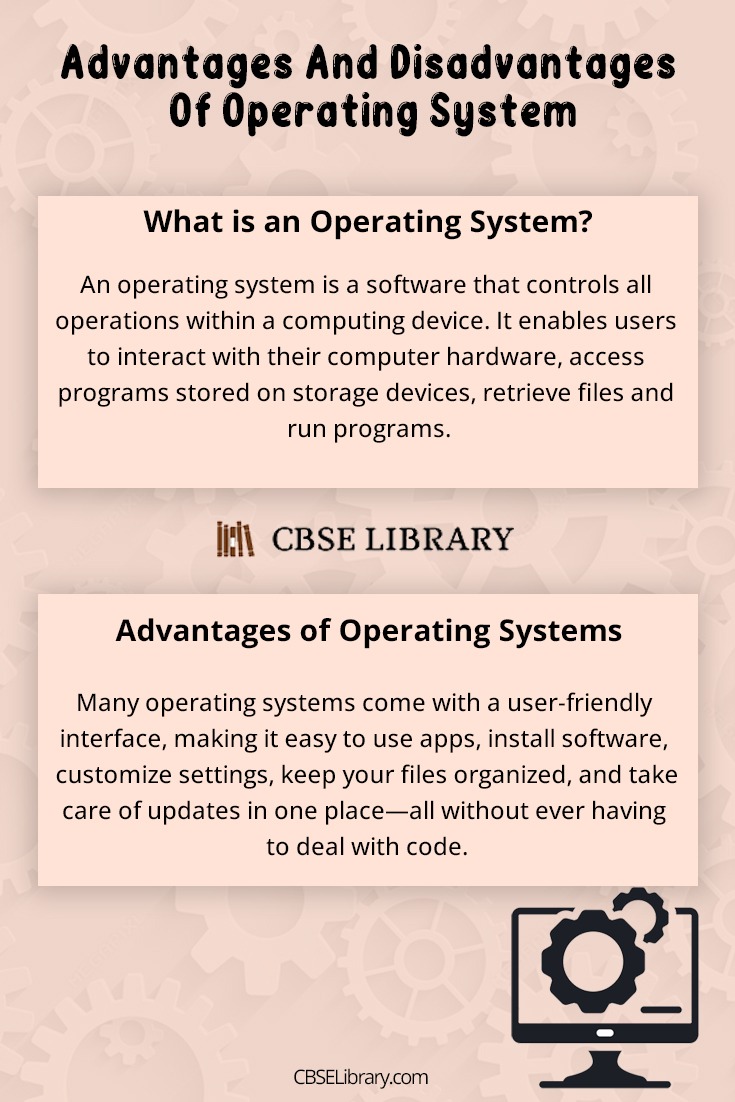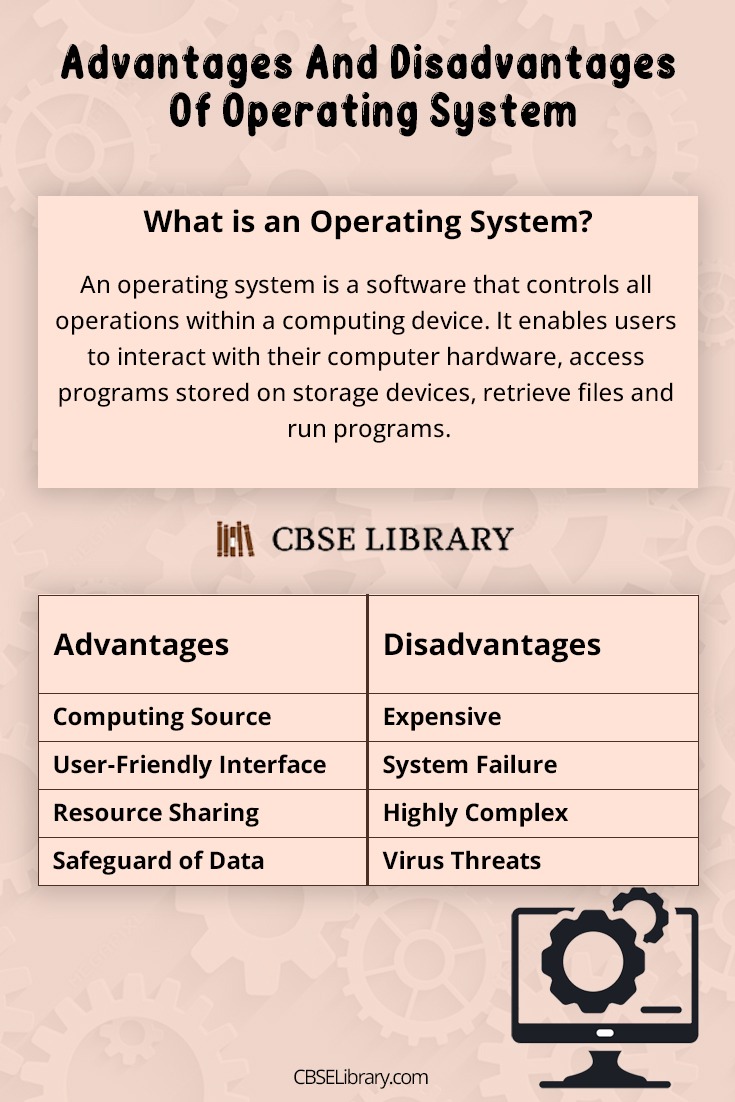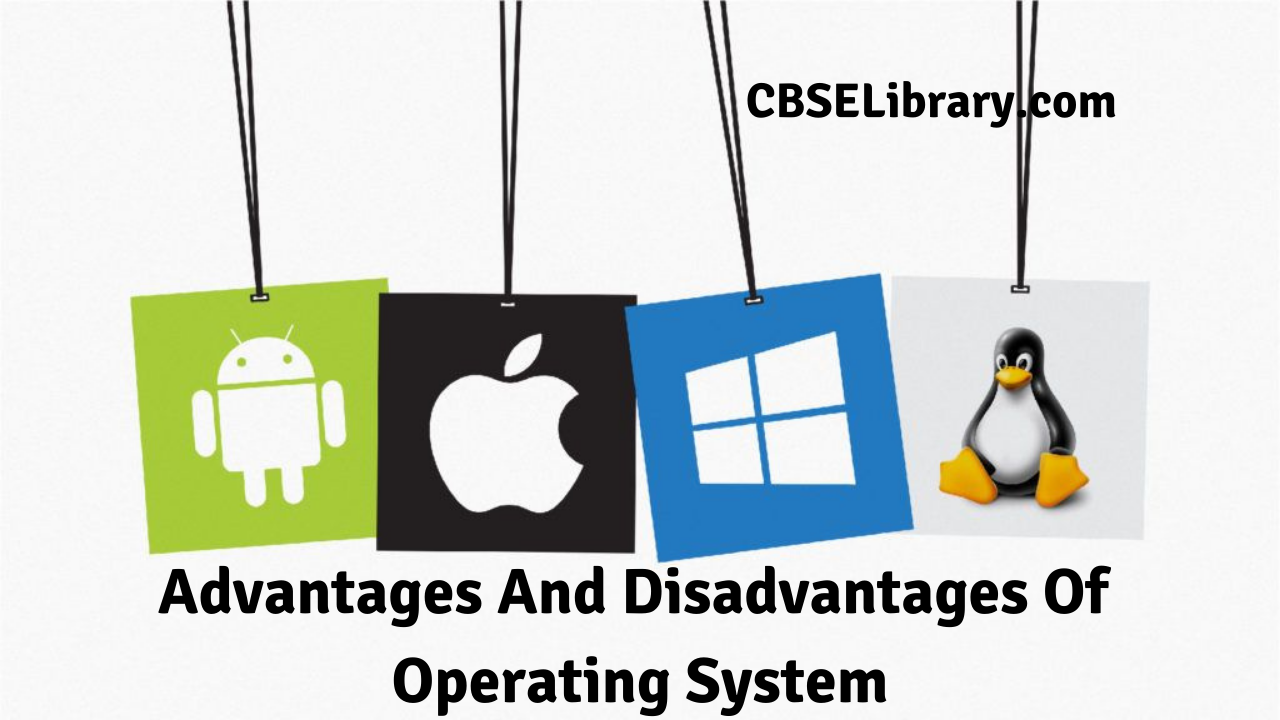Advantages And Disadvantages Of Operating System: The advancement of technology has been remarkable in the past decades, and it doesn’t seem to be slowing down anytime soon. Technological advancements have always been beneficial for society, however, some people find it difficult to keep up with all the new developments. This is why operating systems were created in the first place. Operating systems exist to make our lives easier by helping us keep up with all the latest technologies, but at the same time, they have also created a bit of a divide in the software development world between those who create them and those who don’t develop them.
Students can also find more Advantages and Disadvantages articles on events, persons, sports, technology, and many more.
What is an Operating System?
An operating system is a software that controls all operations within a computing device. It enables users to interact with their computer hardware, access programs stored on storage devices, retrieve files and run programs. There are three main types of operating systems in use; Windows, Mac OS X, and Linux. Each has its own set of advantages and disadvantages that may affect users’ decisions when choosing an operating system for personal use or business purposes.
Each operating system has its advantages and disadvantages. To determine which OS is best for you, you must weigh them against your personal preferences. For example, if you prefer to have a high degree of control over how your computer works, Linux may be ideal for you.
- Advantages of Operating System
- Disadvantages of Operating System
- Comparison Table for Advantages And Disadvantages Of Operating System
- FAQ’s on Advantages And Disadvantages Of Operating System
Advantages of Operating Systems
Many operating systems come with a user-friendly interface, making it easy to use apps, install software, customize settings, keep your files organized, and take care of updates in one place—all without ever having to deal with code. This is super helpful for people who are used to using their computer for work or play. It’s also useful for folks who don’t have much experience with computers (but want to start learning). Advantages of Operating Systems are:-
Computing Source
- Computing sources are a collection of software, hardware, applications, protocols, standards, and tools used to create computers. A computing source is a computer system or resource that is used to store, process, send, or receive information.
- With a computing source, it is easy to gather data, carry out tasks, complete programs, store information in digital form, perform calculations on data stored in digital form; have multiple users share access to program instructions at once (for multitasking); link different devices or users together over communication networks; easily upgrade software systems when improvements are made available.
User-Friendly Interface: A user-friendly interface can be easily used by anyone, regardless of experience. For example, a user-friendly interface for a smartphone might include an onscreen keyboard that pops up when you need it. This way, you don’t have to go hunting for it in your settings. Instead, it just appears when you need it—and disappears when you don’t.
Resource Sharing: The most basic advantage of sharing a resource is that it makes that resource more affordable. The benefits you get from having access to something depending on how much you would have paid for it—and, if it’s free, you may be less likely to take care of it. This is especially true with public resources like parks and roads.
Safeguard of Data: A safeguard is a security measure designed to protect something. It’s a way to help prevent loss, damage, or theft. The advantage of safeguarding your data is that it makes sure that your information stays safe—and it makes sure that only you can access it. This means you don’t have to worry about someone else accessing your files without permission or snooping through them when you aren’t looking.

Disadvantages of Operating System
As you may have heard, operating systems can crash. While most major operating systems come with built-in protection against fatal errors (they rarely crash), they still happen on occasion, bringing down your entire system with them. Even if you do everything right when it comes to backups, it’s difficult to save all of your work in progress when your system is down. The disadvantage is:-
- Expensive: The biggest disadvantage to using an operating system is that it’s expensive. Not only do you have to pay for your computer (which can cost anywhere from $500 to $2,000 or more), but you also have to buy software—and lots of it. You’ll need a word processor, spreadsheet program, email client, photo editor, media player, web browser and dozens more programs.
- System Failure: If your operating system fails, the only thing you can do is reboot your computer or call a professional. Nevertheless, since most OS failures occur when a file is getting saved while a program is hanging, they are particularly devastating.
- Highly Complex: Another disadvantage to using an operating system is that they are highly complex. It means that you have to spend a lot of time learning how to use it, which can be frustrating if you just want to get work done. In addition, there are so many operating systems that it may be hard to find one that meets your needs perfectly.
- Virus Threats: One big disadvantage to using an operating system is that it’s vulnerable to viruses. Viruses are essentially small programs that invade your computer, replicate themselves, and then damage or destroy your data. Some viruses are designed simply to be annoying (like screen savers that turn on at inconvenient times), but others can destroy entire hard drives or steal your passwords. The threat of a virus attack makes every day spent working on a computer just a little bit more stressful.
Comparison Table for Advantages And Disadvantages Of Operating System
| Advantages | Disadvantages |
| Computing Source | Expensive |
| User-Friendly Interface | System Failure |
| Resource Sharing | Highly Complex |
| Safeguard of Data | Virus Threats |

FAQ’s on Advantages And Disadvantages Of Operating System
Question 1.
What are the operating systems?
Answer:
An operating system (OS) is software that manages hardware devices such as disk drives, printers, keyboards, and monitors. An OS runs programs on a computer or mobile device. A common example of an OS is Windows 10.
Question 2.
Is Intel an operating system?
Answer:
No, Intel is a CPU manufacturer.
Question 3.
What is the 5 operating system?
Answer:
Windows, macOS, iOS, Android, and Linux are the five most commonly used operating systems.
Question 4.
What is the main purpose of OS?
Answer:
An operating system’s main purpose is to act as an intermediary between hardware and software applications.
